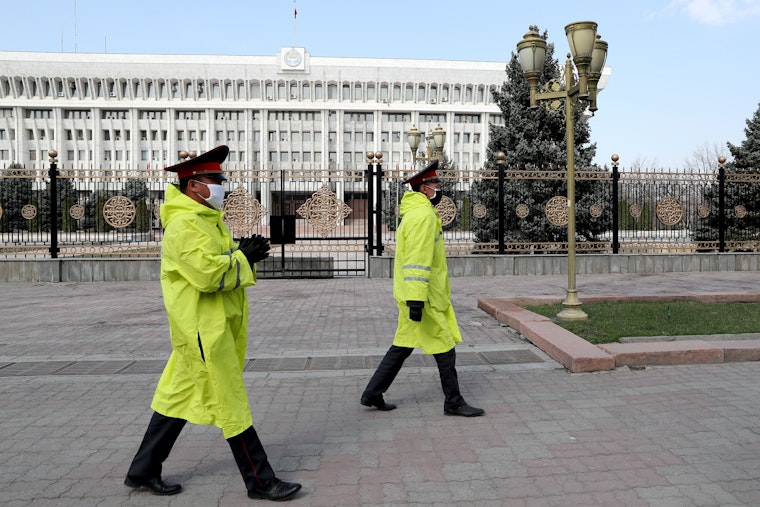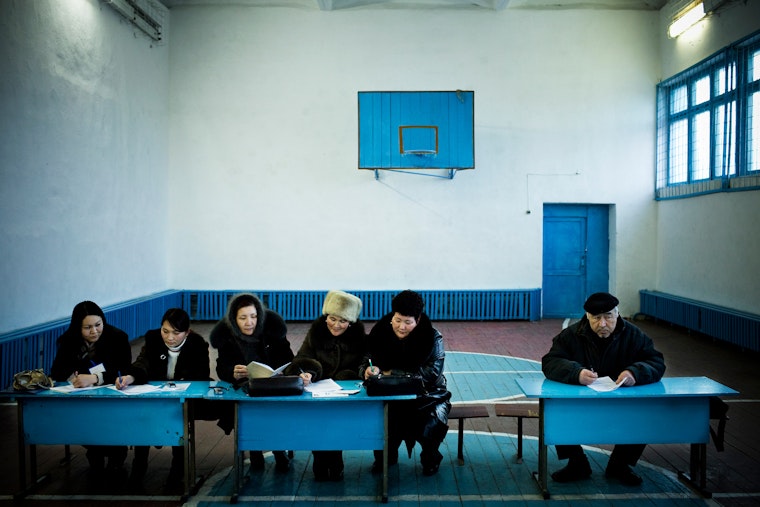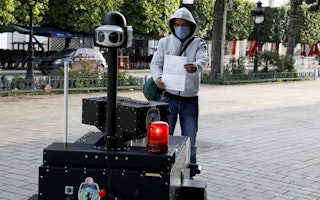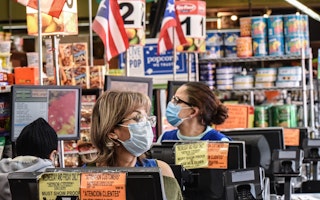A Power Grab in Kyrgyzstan
By Erkina Ubysheva & Dinara Oshurakunova

Over the past four months, the government of Kyrgyzstan has made repeated attempts to impose new restrictions on nongovernment organizations. Now with the coronavirus pandemic dominating global headlines, one of these initiatives is being rammed through parliament in an attempt to permanently change the country’s civil society landscape.
A proposed new law currently before the country’s parliament would introduce new reporting requirements on nongovernmental organizations, and would give the government a wide margin of discretion for determining these reporting conditions.
As advocates who believe that independent civil society groups play a vital role in Kyrgyzstan’s social, economic, and political development, we are deeply concerned. We fear that this proposed new law is only the first step; that once the state has the information collected through this process, it will then use it to draft further legislation specifically targeting NGOs critical of the government based on their funding and structure.
A mixture of local and international pressure was enough to block previous attempts to place unjustified restrictions on nongovernmental groups. Unfortunately, Kyrgyzstan’s international partners are now distracted by the concerns of the pandemic, giving the government a freer hand. Yet it is vital for Kyrgyzstan’s future that its energetic civil society survives this crisis, and emerges to play a role in the post-coronavirus crisis world.

At stake are two competing visions for the country. In Freedom House’s annual Freedom in the World report, Kyrgyzstan has consistently ranked as the freest country in Central Asia. While many politicians and political parties have discredited themselves in recent years through their connections to corruption and criminality, NGOs have grown in authority as public trust in them has increased. But Kyrgyz President Sooronbay Jeenbekov appears determined to change that. There are fears the new measures will undermine civil society’s role as a bulwark of democratic institutions—mirroring the slide into authoritarianism seen in Russia under President Vladimir Putin.
In October, for instance, Kyrgyz citizens are scheduled to go to the polls to elect a new parliament that will determine the direction of the country for the next five years. Practices such as vote buying and ballot stuffing still occur. But an extensive network of NGO election observer groups has been able to exert enough pressure to keep the practices to a minimum. Now many of those organizations are unsure they would be able to continue to operate if the new bill is passed, leaving the door open to election manipulation.
Sadly, we know that Kyrgyzstan is not the only country in the world where politicians are taking advantage of the global public health crisis to strengthen autocratic power. We also know that Kyrgyzstan is particularly vulnerable—our country’s current constitution is just 10 years old, introduced after violent political unrest in 2010. Kyrgyzstan’s international partners have played an important role in supporting Kyrgyzstan’s democratic progress since those troubled days, often working alongside a host of local and national civil society groups. As we battle through the current global crisis, that support is more important than ever.
Erkina Ubysheva and Dinara Oshurakunova are both partners of the Soros Foundation–Kyrgyzstan.
Erkina Ubysheva is executive director of the Smart Zharan Association in Bishkek, Kyrgyzstan.
Dinara Oshurakunova is a human rights activist in Bishkek, Kyrgyzstan.


